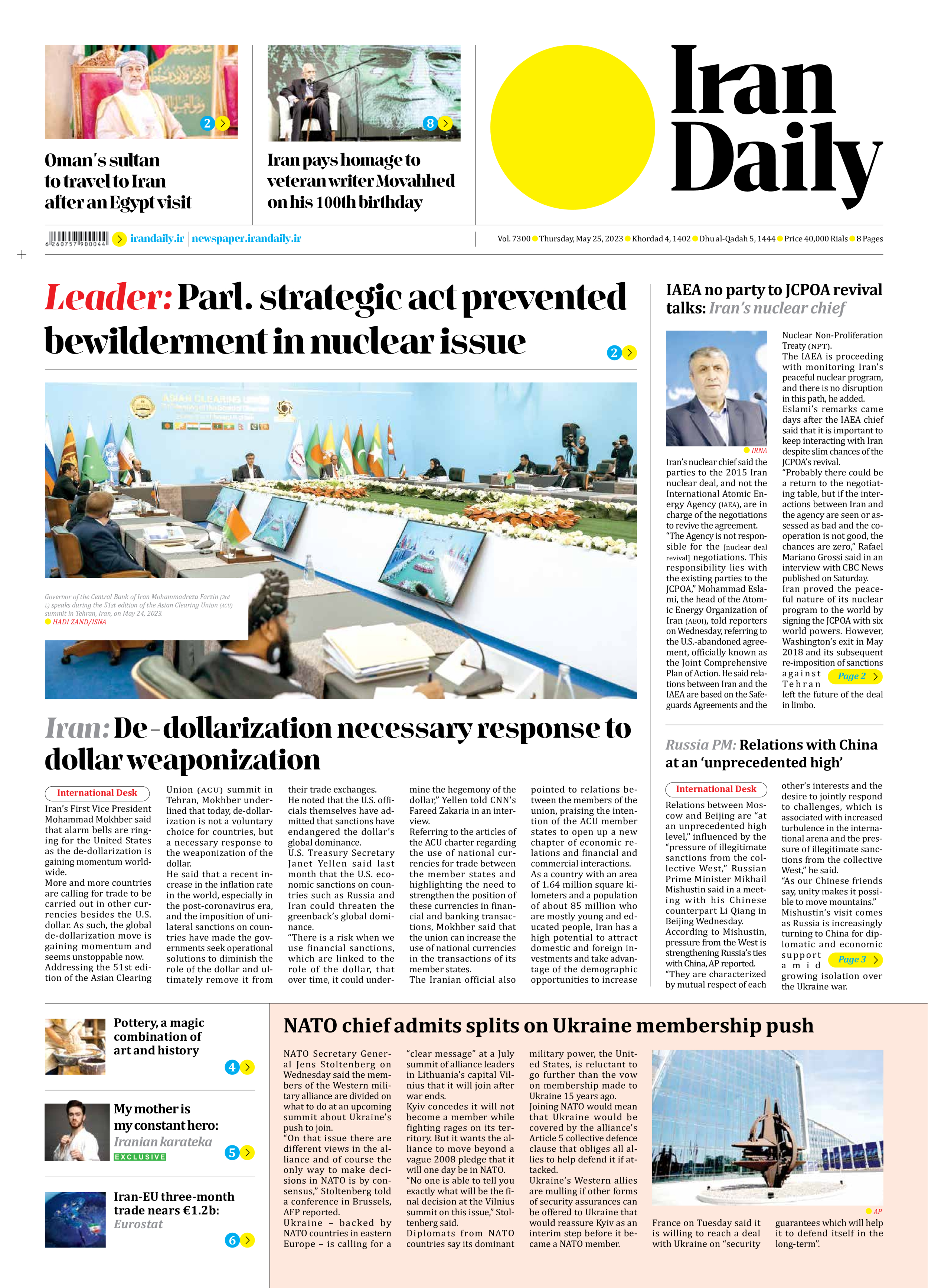
Iran: De-dollarization necessary response to dollar weaponization
Iran’s First Vice President Mohammad Mokhber said that alarm bells are ringing for the United States as the de-dollarization is gaining momentum worldwide.
More and more countries are calling for trade to be carried out in other currencies besides the U.S. dollar. As such, the global de-dollarization move is gaining momentum and seems unstoppable now.
Addressing the 51st edition of the Asian Clearing Union (ACU) summit in Tehran, Mokhber underlined that today, de-dollarization is not a voluntary choice for countries, but a necessary response to the weaponization of the dollar.
He said that a recent increase in the inflation rate in the world, especially in the post-coronavirus era, and the imposition of unilateral sanctions on countries have made the governments seek operational solutions to diminish the role of the dollar and ultimately remove it from their trade exchanges.
He noted that the U.S. officials themselves have admitted that sanctions have endangered the dollar’s global dominance.
U.S. Treasury Secretary Janet Yellen said last month that the U.S. economic sanctions on countries such as Russia and Iran could threaten the greenback’s global dominance.
“There is a risk when we use financial sanctions, which are linked to the role of the dollar, that over time, it could undermine the hegemony of the dollar,” Yellen told CNN’s Fareed Zakaria in an interview.
Referring to the articles of the ACU charter regarding the use of national currencies for trade between the member states and highlighting the need to strengthen the position of these currencies in financial and banking transactions, Mokhber said that the union can increase the use of national currencies in the transactions of its member states.
The Iranian official also pointed to relations between the members of the union, praising the intention of the ACU member states to open up a new chapter of economic relations and financial and commercial interactions.
As a country with an area of 1.64 million square kilometers and a population of about 85 million who are mostly young and educated people, Iran has a high potential to attract domestic and foreign investments and take advantage of the demographic opportunities to increase production and economic growth, Mokhber said.







